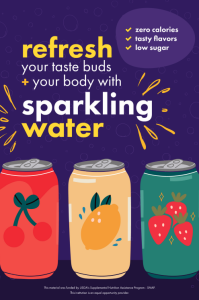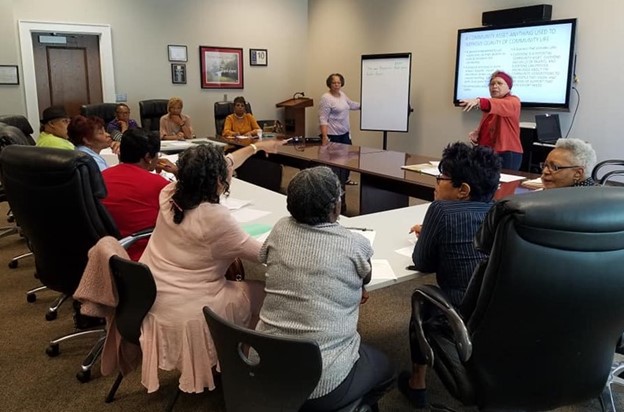Completed Projects
WAGE$ Study
The WAGE$ Study was a five-year study that evaluated the effects of a minimum wage increase in Minneapolis on the health of low-wage workers.
About the Study
Study Team
Participants
Partners
Study Principles for Community Engagement
Conclusion
On February 15th, 2023, our Minnesota and Raleigh teams completed our final interview for our final year (year 5) of our WAGE$ Study exploring the impact of a living wage ordinance in Minneapolis. Ultimately, we were able to get 58% of our original participants from Year 1 back in year 5 (that’s 63% in Raleigh and 53% in Minneapolis)!
We have also conducted two rounds of interviews with a smaller set of our participants in both Minneapolis and Raleigh. The main reasons for these interviews were to learn about our participants’ lived experiences of changes in wages, changes in benefits (like SNAP benefit levels) and with the pandemic. Here is a link to a short, five-minute, video that summarizes some of what we learned from our first round of interviews (https://hpdp.unc.edu/fforc/wages-study/).
Here’s some things we have learned so far from our WAGE$ study:
- SNAP benefit receipt decreased from the first year we collected data to the second year in both sites (2019 to 2020), but by the fourth year (2022), SNAP benefit receipt had increased at both sites.
- By year 4, 29.8% of participants were unemployed, and 61.5% received SNAP benefits.
- Only about 50% of our participants who have children reported receiving child tax credit payments, given during the height of the COVID pandemic.
- Having a bank account was associated with the receipt of a pandemic-related stimulus check, suggesting that people without bank accounts had difficulty receiving the benefits they were entitled to.
Healthy Retail

Together We Shop! Behavioral economics and social marketing are key components to making healthy food choices. We collaborate with business owners and marketing professionals to find ways to make shopping for healthy food easy and affordable. This Healthy Retail project partnered with several community convenience stores to investigate the impact of in-store signage in promoting sparkling water sales. Read all about it HERE!
Orange County Food Council
The Orange County Board of Commissioners defunded the Food Council in Orange County in December 2022. The Food Council was able to compile a report of community recommendations for addressing food and nutrition security in the county. The full report can be found on our Products, Publications, and Presentations page.
Community Circles
This project was an effort to meaningfully engage SNAP-eligible residents who are experiencing or have experienced food insecurity in facilitated, strengths-based dialogue to identify policy, systems, and environmental solutions to community-level food insecurity. Community Circles ultimately allows participants to guide the conversation to understand how food insecurity manifests in their community and develop community-approved solutions to address food insecurity.
Community Circles are community dialogues for change, which are held in six rural communities.
- In six rural communities, our team facilitated community dialogues with community partners. The discussions covered why people experience poverty and led to action plans around how to build on community assets to address food insecurity.
- Led to three community-based projects to increase access to culturally-appropriate nutrition education and strategies to be physically active.

Warren County Community Circle, led by community leader Jane Ball-Groom.
